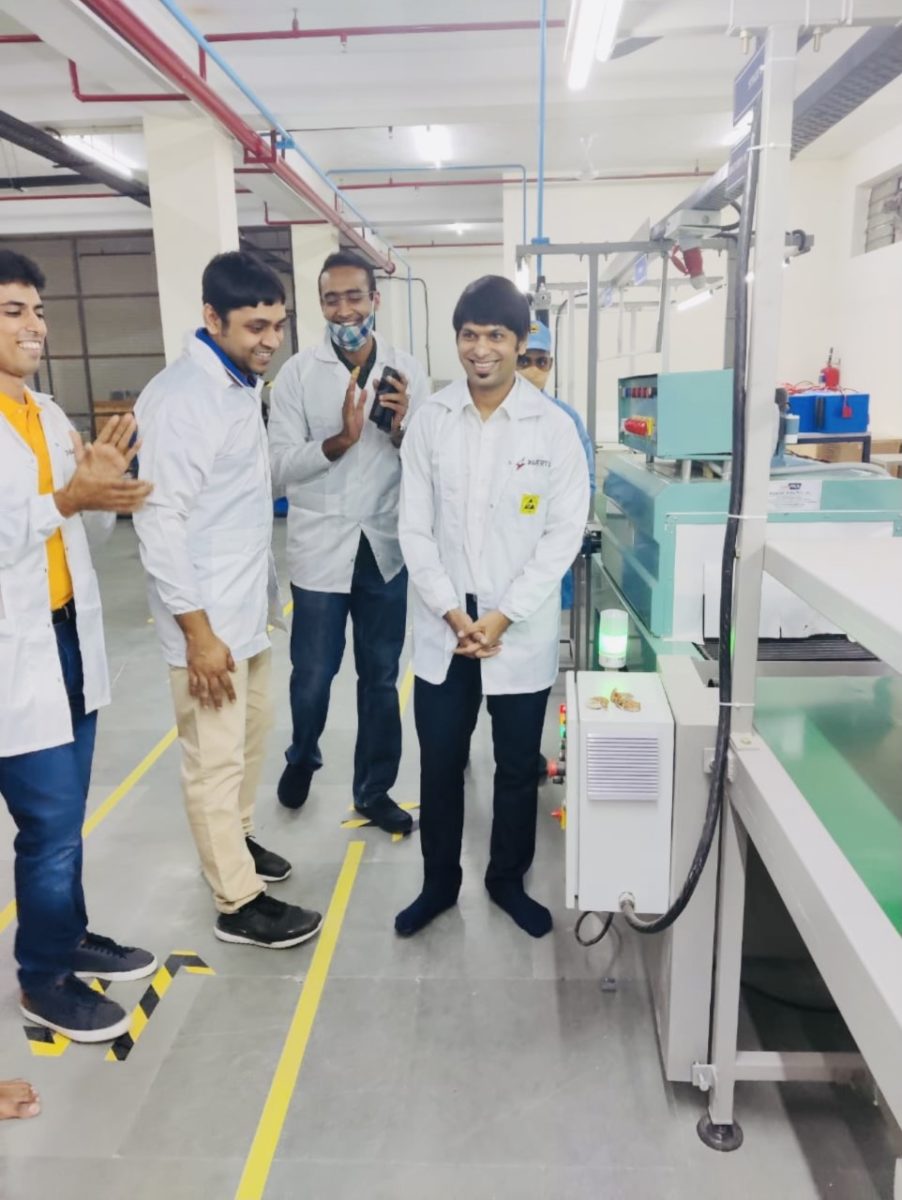Delhi-based Inverted Energy recently launched the operations of its 100 MWh lithium-ion battery assembly unit at the city’s Okhla industrial area.
The facility would initially focus on producing batteries for energy storage systems in residential, commercial and industrial, and utility-scale sectors, and for electric mobility.
Going further, the company plans on extending the in-house manufacturing capabilities to cater to critical applications like healthcare and telecom wherein batteries form an essential part of the applications—Aditya Goel, co-founder, Inverted Energy, told pv magazine.
Li-ion cells
The company sources Li-ion cells for its batteries from countries like South Korea, Japan and China, where most of the world’s cell manufacturing capacity is concentrated.
It has been able to keep the supplies running even when sourcing has been particularly challenging over the last few months due to the Covid pandemic.
“With the restrictions on air travel as a result of Covid, identifying, and qualifying vendors who meet our requirements has been challenging. We were fortunate in this regard to have visited over 80 factories in these countries who have supported us with cell supplies during these difficult times,” Goel said.
“The increased cost of logistics post-Covid—which has seen both Air and sea freight rates increase by three times over the past six months—has been an additional challenge, which has impacted supply chains across industries.”
As for expansion plans, Goel said, “We would like to grow the business organically and would think of expanding our present capacity only once we are unable to cater to demand after running multiple shifts from the same location. We anticipate that the present capacity should be sufficient for the next year.”
Currently, Inverted Energy offers batteries up to 10 MWh for utility-scale, commercial and industrial (50-500 kW), residential (3/5/10 kWh) applications. In e-mobility, it provides batteries for electric two-wheelers and three-wheelers as well as customized solutions.
“For the battery packs being developed by us for specific applications, we use cells having configurations that match the end-use requirement. The requirements could vary based on the need for a particular discharge rate, energy density and temperature stability,” Goel said.
The company expects its flagship home energy storage product ‘Zion’ to be available for retail from March 2021. Besides, it has launched an industry-first ‘Buy-back Guarantee’ for e-rickshaw owners to incentivize Lithium-ion batteries’ adoption vis-a-vis traditional lead-acid batteries.
This content is protected by copyright and may not be reused. If you want to cooperate with us and would like to reuse some of our content, please contact: editors@pv-magazine.com.









3 comments
By submitting this form you agree to pv magazine using your data for the purposes of publishing your comment.
Your personal data will only be disclosed or otherwise transmitted to third parties for the purposes of spam filtering or if this is necessary for technical maintenance of the website. Any other transfer to third parties will not take place unless this is justified on the basis of applicable data protection regulations or if pv magazine is legally obliged to do so.
You may revoke this consent at any time with effect for the future, in which case your personal data will be deleted immediately. Otherwise, your data will be deleted if pv magazine has processed your request or the purpose of data storage is fulfilled.
Further information on data privacy can be found in our Data Protection Policy.